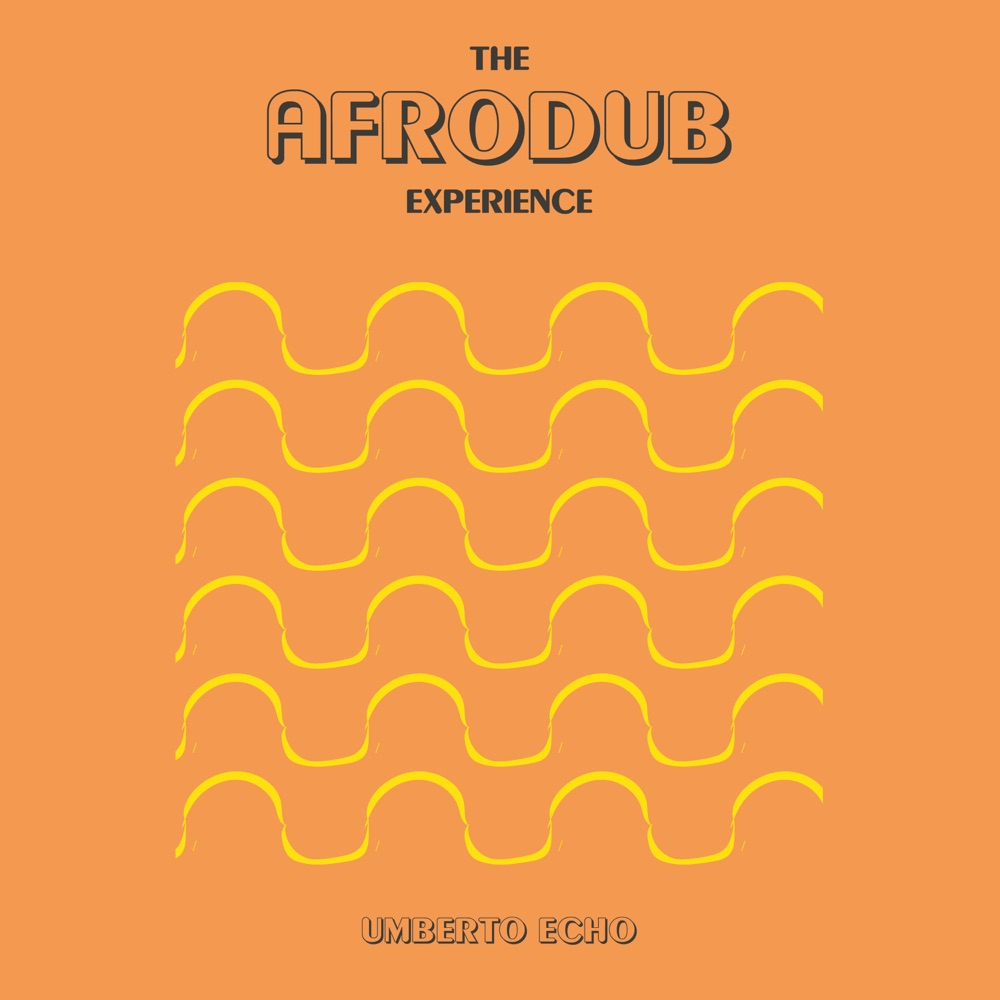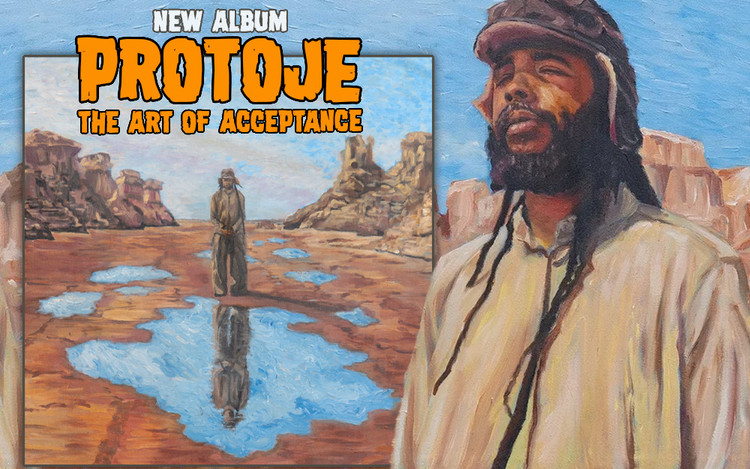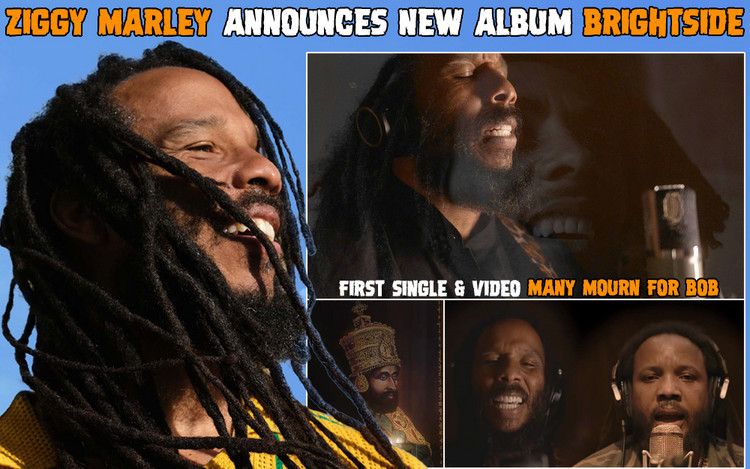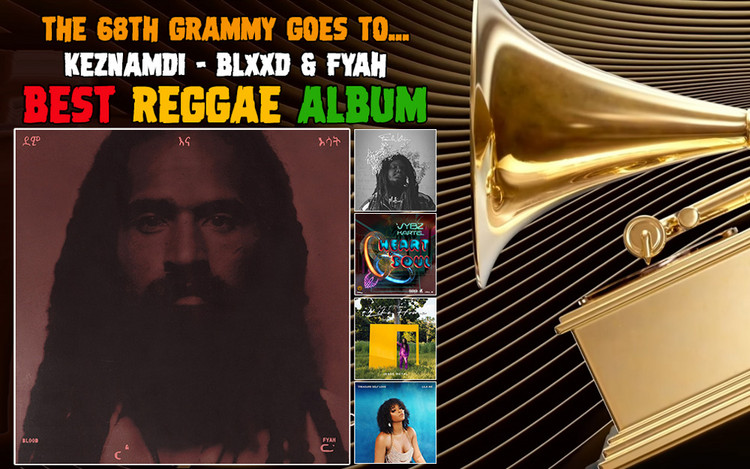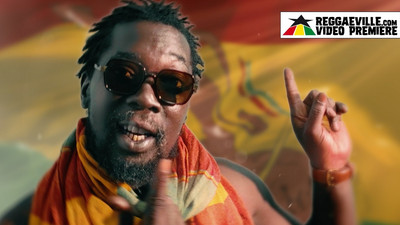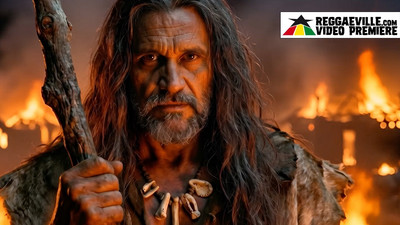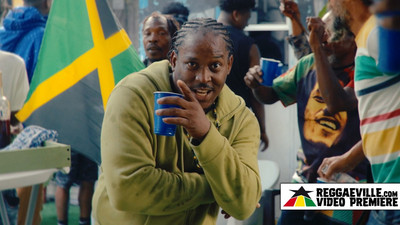Umberto Echo ADD
Umberto Echo - 'The Afrodub Experience' Interview
10/25/2025 by Munchy
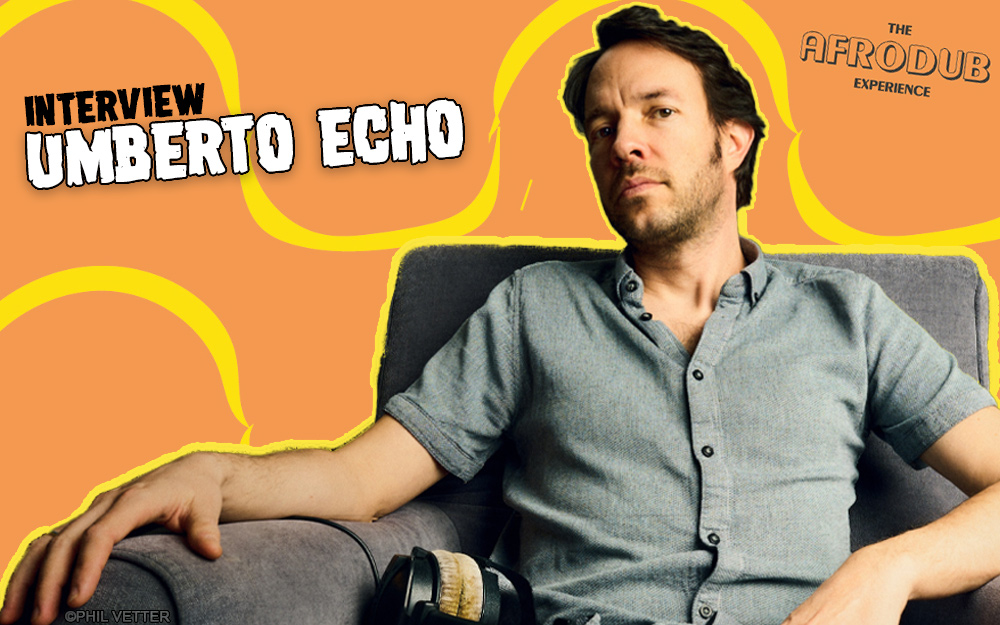
There are works where the making is the meaning, where the road itself becomes the goal. And sometimes the path leads us astray – into detours, onto ways unplanned. But that’s not always a bad thing. At times, the unexpected turns out to be so thrilling that one begins to wonder whether the journey should ever end at all.
Umberto Echo, too, has found himself on such a voyage – an 18-year odyssey that began with his eventually twelfth studio album and was never meant to last this long. Along the way, he gathered musicians from four continents, breathed life into effects and gear spanning over half a century, and summoned the vibrant spirit of 1970s Afrobeat into present day.
The result is a lively, colorful, and radiant masterpiece – a creation like no other. Join Munchy as she revisits this remarkable journey together with Philipp Winter, better known as Umberto Echo.
You started working on the album 18 years ago, right? What was the initial spark?
Yes, around 2007/2008. On my first album that came out in 2007 I had one track called Feelavibe, written like Fela Kuti, Fela-Vibe, and it was kind of an Afrobeat-ish thing. I recorded it with Australian keyboarder Barney McAll in New York city and he overdubbed on the track. That was in 2005. He was like “This is kind of Fela Kuti style” and I said “Yeah, I know.” He asked me “Do you know the documentary about Fela Kuti?” and I was like “No.” He asked, “Do you know YouTube?” and I was like “No.” (laughs).
It was the year when it came out. So, he showed me the Fela Kuti documentary on YouTube, which was both new to me, and that was when I got into the original 70s Afrobeat. I started to get interested in it, checked it out more and that’s when I really wanted to do more of this stuff. I always like to mix different genres and blend it with my dub-remix style. Even very early on that was kind of my concept. So, even while I was working on my first album, I thought I would love to do more Afrobeat stuff and mix that with reggae and dub. That was the initial idea in 2005 and around 2007/2008 through Guiseppe “Josi” Copolla, drummer of the Evolution band, I met these people in Berlin. At the time there was a band collective around Oghene Kologbo, the original Fela Kuti Africa 70 guitar player, and they had a project called Afrobeat Academy. Ben Wolff, the saxophone player, was the guy arranging all the music. I met him through Josi and told them about my ideas. They showed me some demos and I said “Yes, let’s do a session!”. That was the first recording that took place around that time in Berlin with them. I overdubbed Nicholas Ado-Nettey, who is also an original percussionist of Fela Kuti’s Africa 70. Kologbo was not present in this session, but later on I got another track from Josi, where he was on, and I met them and saw them live. We visited his studio where they recorded before and all that was the initial thing.
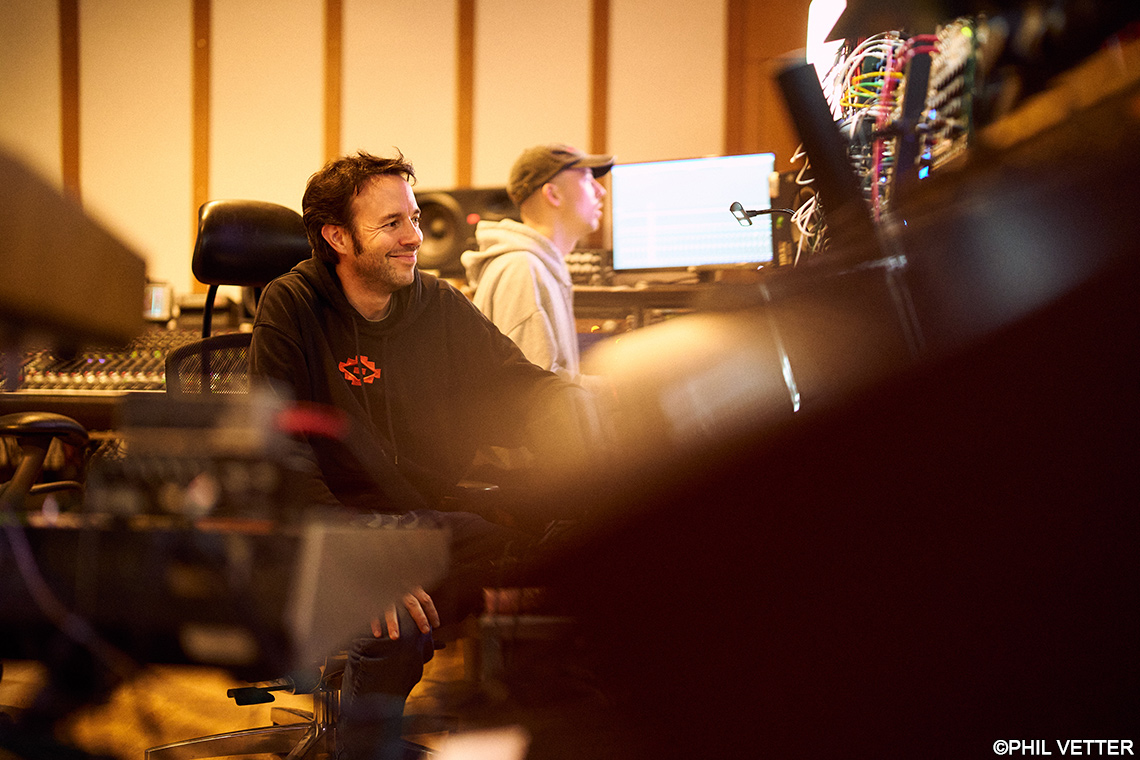
But it wasn’t a full album. I had four or five tracks, all unfinished. I finished one of them for my second album – which turned out to be the third… (laughs), so I put it there. But I had another one, I think, on another album, so I used some of these tracks already and then later on I made more recordings with Silvan Strauss and his band TOYTOY in Hamburg and also overdubbed Barney again on all the tracks and that’s how this on-and-off working on the project started over the years. I was never sure if the concept is working and there was always something missing, at least in my opinion. I didn’t want to make a straight Afrobeat album that has a bit of dub effects. I wanted to put more variety in it. That took a long time, different sessions, different overdubs… later on I had these tracks with Kologbo. I sent them to Barney who had moved to Australia, in the meantime. He was in New York city for 20 years; I always met him there to record for other projects. Then he moved to Australia, which was a bit too far. So, I started also sending stuff around.
The very last track that we finished was Nguê Ghara with Lenna Bahule. She sent the vocal track the day we mixed it. I was with Silvan in the studio last year, in 2024, and the day we mixed it she sent the vocals.
Every track has a story of its own; how I started it, how it developed with different people, remixing it… It took forever because I wasn’t sure about the concept and then last year I was like “Ok, now, I want to finish it!”. Usually, I can finish albums very good, it’s my job. People hire me to finish their albums. I just really had to make a plan, set up a budget, and find people help me to release it. Then finally I was ready last year to mix it together with Silvan who is playing a lot of the drums. There are two drummers on the album. There is Guiseppe Copolla of the Evolution and Silvan Strauss. Kind of 50/50 they play on the record. Silvan also remixed stuff and he did the final mixing with me in Berlin last year. That’s the overall story and the initial thing.
You said last year you found the concept. So, what is the concept of The Afrodub Experience?
For me it was, that Fela Kuti was heavily influenced by music he brought from the Caribbean or the US back to Africa, like jazz, funk, and probably also reggae, and founded a full genre on his own. There is no doubt that Fela Kuti founded this Afrobeat movement. It was not only a musical genre, it was also a political movement. This is the fascinating part of the persona and also the music. What I did, is, I took this and kind of brought it back into the Caribbean and the US by inviting many people from the Caribbean and the States to play on the record. That’s the other direction. And I opened it up again for a more modern sound, more of a remix thing, but there are some traditional grooves also.
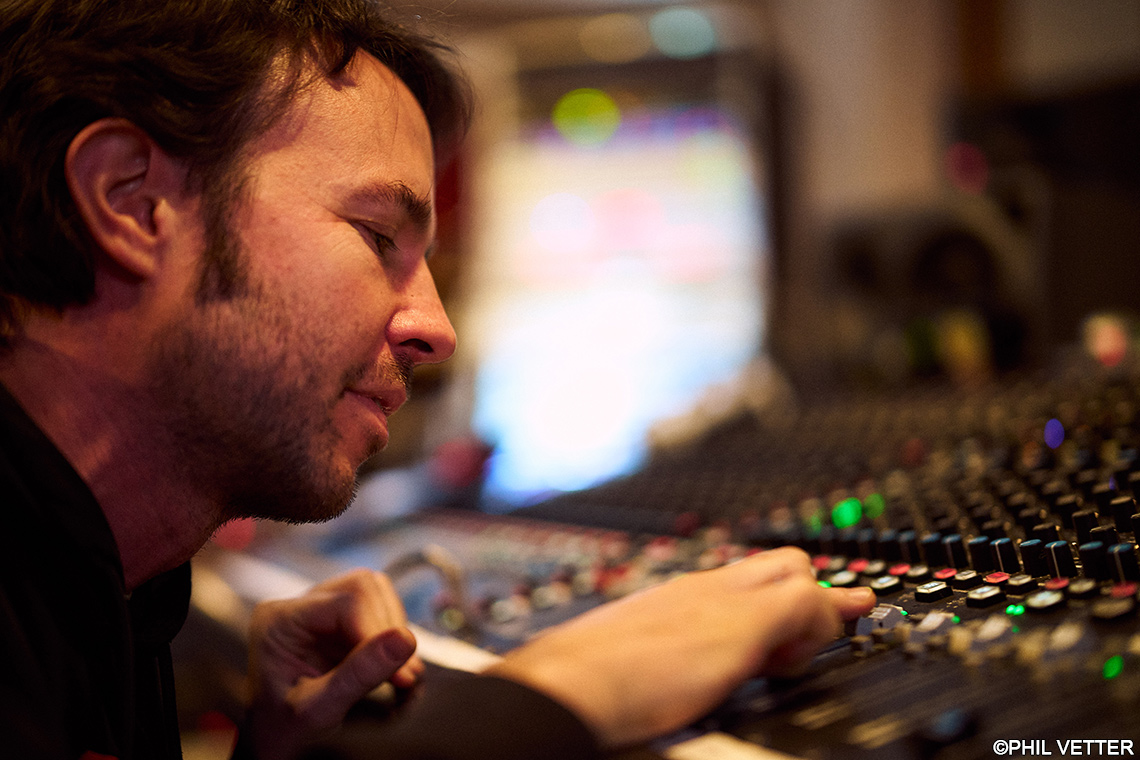
The concept from the beginning was that dub is breaking down reggae music and opening the view for all the different layers. If you have a very dense reggae track with vocals on it, you might not be able to really understand what’s going on. That’s so great about dub music: if you strip it down to drum and bass, then you can understand how this is working together. It’s also good if you want to learn about the music to listen to dub because then you can hear all the instrumental parts like “oh, this is only the two guitars doing” etc. That’s what I wanted to do and did with Afrobeat because it has kind of the same structure: very specific guitar patterns, that are the original style, very specific drumming, basslines… that’s what I wanted to do. It doesn’t work in all tempos, so I had to figure that out, where this concept works of dub mixing it, taking out stuff and back in.
Then I also wanted to give it a modern twist. Fela Kuti’s jazz influence was very down to earth, very roots, not so much virtuoso, not so much conceptual, not so much theory. To me it sounds very natural when he’s playing solo. What I added is like the more modern, sophisticated kind of thing. Not to say that it’s better but I like it very much and I tried to mix that into it, too.
It took a long time to get that all together and to have a full album that represents all these different ideas in a way where it’s not too much leaning on one side or the other.
You said Afrobeat has specific patterns and stuff. Was that something you learned throughout the process of creating this project or what lessons did you actually learn during the production?
Learning the music was in the very beginning with these people who knew what they were doing, like Ben, the saxophone player who also wrote some of the songs and made the horn arrangements on the songs that came out before. He learnt it from the original guys, he played with them. And also Josi, they really know this music and they explained it to me, how it works and showed it to me. I recorded it and then I had the tracks and that’s how I understood. Then also with Barney who played a lot of this music, how he added his keyboard style, which sounds… and then it’s what you normally do as a producer or a sound engineer you listen to a lot of music and try to figure out how it might have been done from the performance perspective and also from the sound perspective. But the initial understanding of the music itself was very early when these people showed me how they do it and how it’s done.
Were all these songs recorded specifically for this project to be dubbed? Or were some of the songs recorded and then you decided after to make a dub version of it?
The only one that existed before, that was kind of a classic remix, is the Better Days version of Mark Wonder. We released it on Oneness Records a couple of years before, in a version with just the vocals and the kora and saxophone, very stripped down. A version that I like very much! And I found out that this was already a remake or a remix of the very original version of Mark Wonder. But I found that out only two weeks ago, that there is another version of it in more of a reggae style. All I knew was that there is this beautiful song by Mark Wonder with a beautiful message and the kora instrument, which is not specifically a Caribbean instrument, but an African instrument.
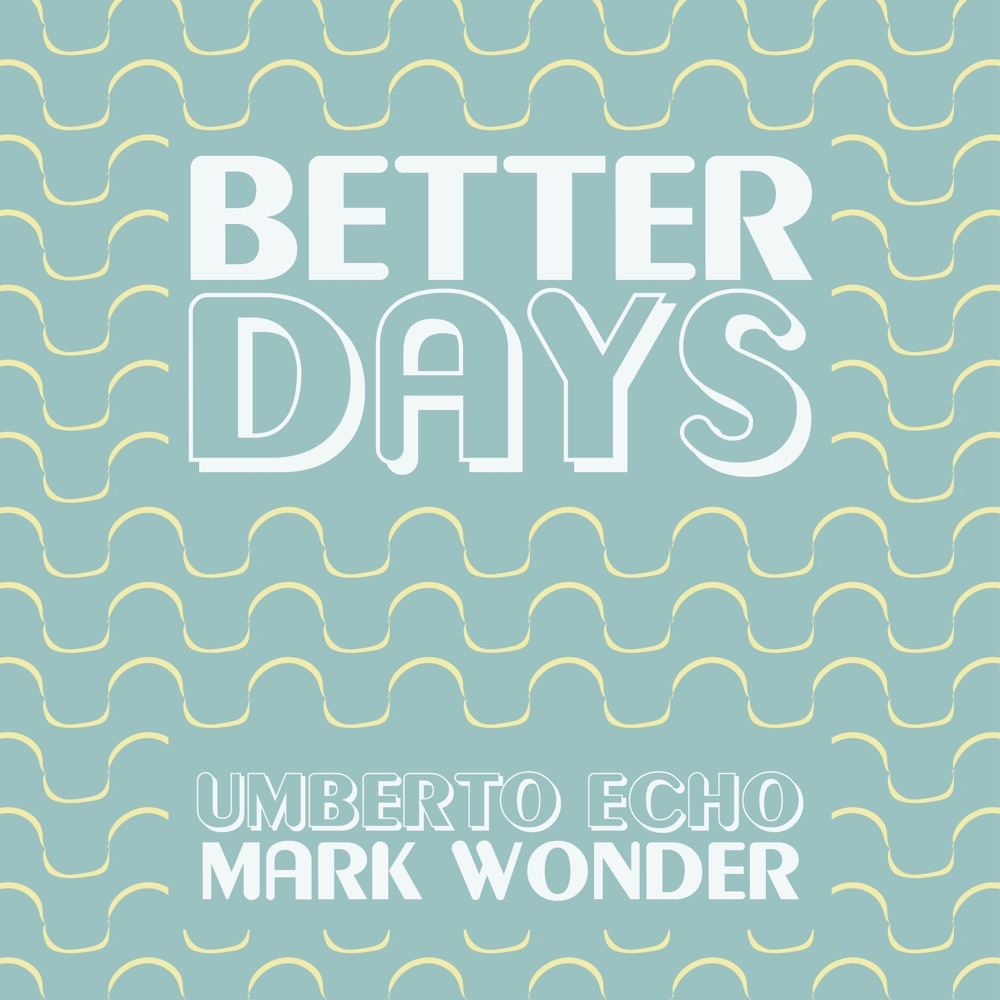
That inspired me to make a new version with Silvan and a double-bass player because I thought acoustic bass fits very well with the kora and it’s in general an instrument that I like very much and that I tried to incorporate in my modern production if it fits. So, that was a remix. But the rest was all written, recorded and produced for this album. There are songs from this very early session that were written by Ben and all the Afrobeat Academy people in Berlin. For the newer ones I did with Silvan Strauss I made demos with just an acoustic guitar. I created some loops and had very rough ideas of the songs like chords, grooves, and different parts. I showed it to them and it’s a very, very good band, so we recorded live. Look At You and The Don Is Coming for example were songs from that session and those were superlong jams of the different parts I gave them. I put them together in still a very long form. I overdubbed other people. And then it got shortened and shortened and shortened. In the beginning the songs were around ten minutes long. I shortened and shortened and shortened over the years. Even in the mastering I cut another eight bars or something, in the very last moment. Because what I wanted and what was also part of the concept, that I have the same length on a single vinyl record and on a CD and streaming. So that there are no different versions. I needed to be under 44 minutes with both sides because the sound degrades after that. That’s a bit of a nerdy sound engineer thing but I wanted to have all the songs on it and even though I love very long Afrobeat jams I wanted to have it more structured and condensed and an experience of time flying by. Not that it’s rushed but so that you don’t feel the time. “Oh, it’s over already?! But it’s been 45 minutes and still where is the time gone and there was so much going on…”. Maybe that inspires people to listen to it over and over again. That’s what I wanted to create. To not have redundance or length in it.
You mentioned what you used. I think you also used some very specific equipment and effects aside from the instruments. What was that?
In the process it was all kind of stuff. As I do all these dub remixes on my own equipment, I have a good collection of tape delays and spring reverbs, all the stuff from mainly the 70s, early 80s. Some of the effects in my studio are older than me and they still work, like the Roland Space Echo or some spring reverb. They are really from this era. You can do all that with the computer but it’s so much easier if you have the original stuff. Because if you want it to sound like the original, why not use the original?! (laughs) It’s easier. It doesn’t necessarily sound better or more authentic, it’s just the easiest way to get the sound.
I did that in the production process with all my own stuff and then for the final mixing I went to a specific studio in Berlin, the Apollo Studio. They have a super high-end German mixing board, ZÄHL AM1. You can do everything with it. It was designed also by Mark Ernestus, who is a great dub colleague. It’s a very specific analogue board that is ideal for live dub mixing in a large-scale studio format. A lot of people are doing live dub stuff, but this is very specific for big projects, electronic music, dub music. The guy also has a 60s broadcast desk, a Beag console, in perfect shape from a Hungarian broadcaster, which is a very old but very good sounding desk. We mixed the opening track with it, which has the most of the original Afrobeat sound, groove and feel I would say, and also Kologbo is on it. On the A and B side I have these songs with part 1 and 2. Part 1 is always the original and part 2 is kind of a remix of the first. If we stay with this first one: Panafrican Dub is an original recording from Kologbo and his people and I mixed that on the old desk, then the second part is mixed on the new desk. There is 60 years of technology in between. It’s nerd stuff but it contributes to the concept. Because the second part is a remix that uses the original tracks but remixes them, Silvan did it mostly, and then we mixed it together. The production remix was done by him and then we went to the studio together again to make the final mix of the whole album and also these two songs in one go but with two desks.
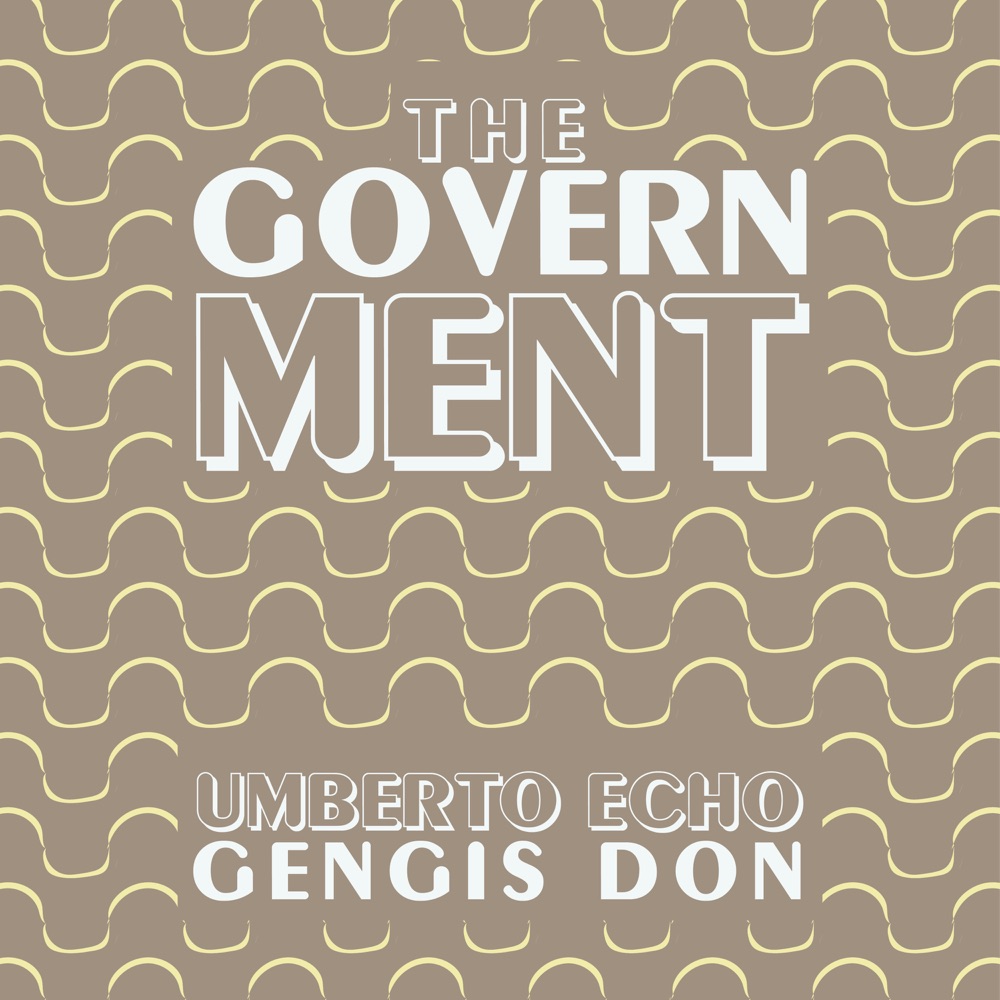
On the B side we have the second song, The Government that also has this concept, which was also an original recording of the Berlin people and then I had Gengis Don, a very talented young producer from New York city who has Caribbean roots. He did the whole remix and contributed also the vocals. He then sent me the files back and I did the mix of his remix production. I applied the same concept two times for the start of the A and B side.
That was also kind of what was missing to bring this very modern style. That’s why I invited people to do it because my perspective, after all these years, wasn’t open enough anymore to get out of this box. So, I had two people helping me with that on those two specific songs.
Was all the dubbing done live in the very moment?
No, a lot was recorded before over the years, then edited, but for example the last tune on the album Kadudu, which was also from the very early recordings, there we did it live. There will also be a video coming out from the very take that we did, like an extended version. In the end we did a couple of these passes, and I edited them together. But there we did it, the two of us, just the tracks coming to the desk and we did everything live the two of us, which gives you more options. You can watch a lot of dub people online and some do really everything and some kind of fake it. They have stuff already pre-recorded going on and they do the final thing, which looks great but is not the real deal where you really do everything. To do it alone, especially when you have a lot of tracks is tricky. In the old days they worked with a four-track or eight-track, they didn’t even have that many tracks, so it was much easier to do it alone and even back then they sometimes didn’t do it alone. In this case it was the two of us on the big desk mixing it and you can watch it in the video that’s coming out for this particular track.
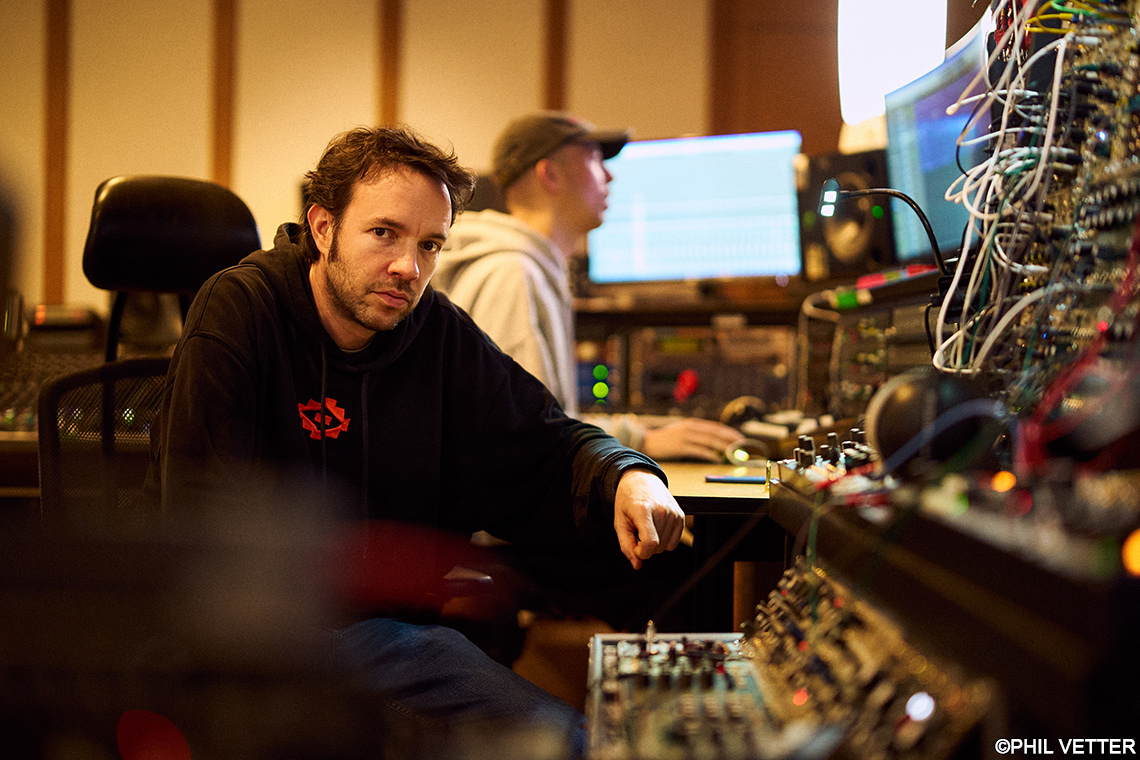
Most of the time I do it live in the studio but then I record the track. It’s like an overdub. There is the music, and I record the specific effects part on top and then if it’s a good take, I can just leave it; if there’s too much or not enough I can edit it, copy stuff, automate, whatever… But I try to always make these passes that have a live feeling. I try to go away from making it in the software, automating everything a hundred times until it’s where I hear it. Compared to that, what I do now is to just record it and try to do it as good as I can and leave it like that.
You already mentioned a couple of the people that are part of the project, people from four different continents. Did you approach these people because you knew they would fit the project or how did they come on board?
Totally different. With the New York connection I was there to record other stuff, to work there and I had the tracks and asked them to do overdubs.
With Silvan, I know him since he was 17 years old when he was still in school with his school band. I recorded their first EP. I showed him the Afrobeat stuff from what I knew and pointed to different recordings, and he checked it out for himself, and we figured it out together. With him I have a very long working relationship. He brought Lenna on board because he was in Mozambique performing with her. I asked him if he knew an African performer, maybe even a female performer and he suggested Lenna. She is very active and super busy, but she wanted to do it and finally made it. Gengis Don from New York, I think I found him on Instagram and liked his productions so much, so some time during Covid I just wrote him “Hey, you wanna be part of the project?”. I found out that he is not only a cool rapper but also producer, so I felt like this could be a good idea and I just tried it.
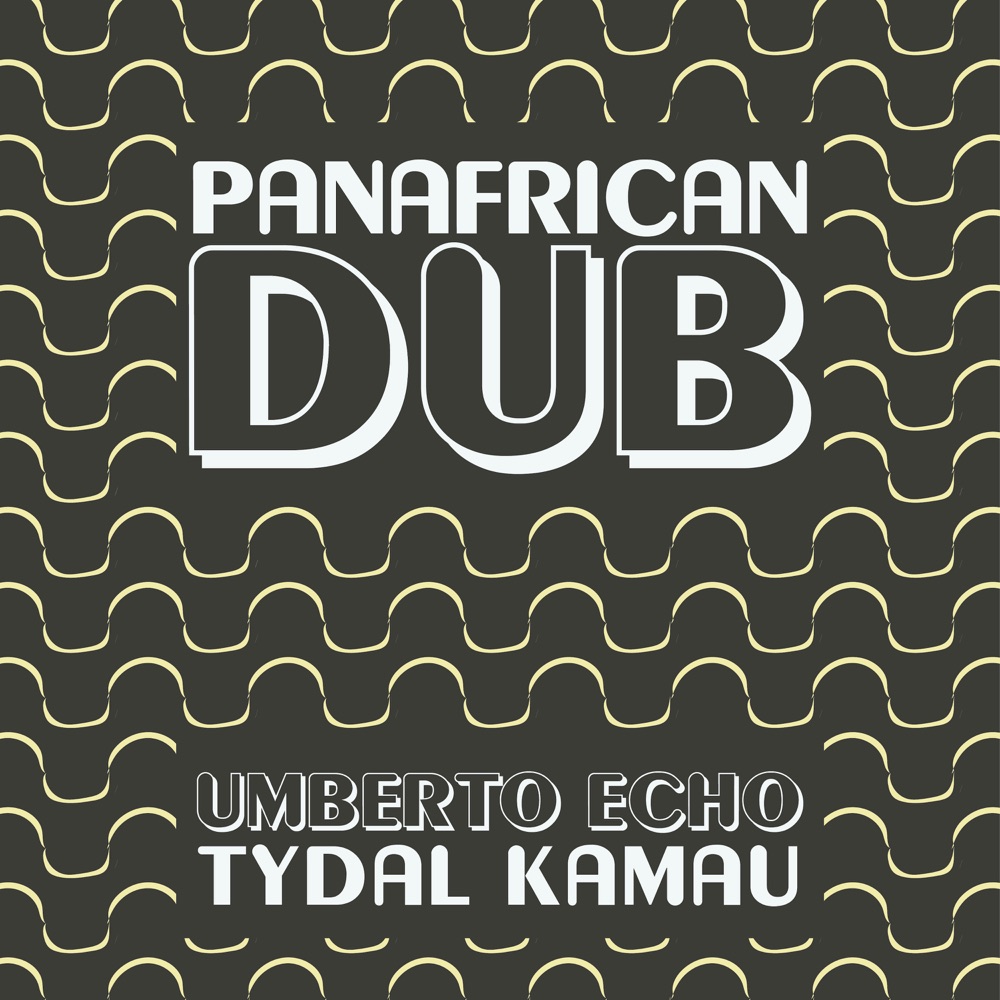
Some of the singers are from the Oneness camp, like Tydal Kamau. I knew that he toured Africa, and it was a big thing for him to be in Africa. I had his voice in my ear for this track all the time before I did it. I really wanted to have him on the track, and I convinced him to do this kind of a dub poetry rapping, which he had never done before. I asked him to do specifically that on the track. He said he had never done it, but he would try and it was exactly how I imagined he would do it with his voice. Then we added backings with Erica Newell who we work a lot with for Oneness Records. Mark Wonder, who we did two full albums and a dub album with. We work with him since forever. So, it wasn’t a big deal to make this remix. That’s how we got this all together.
Yes, I think Tydal did an excellent job. It was surprising to hear him do this style, but it was delivered greatly.
Yes, that is also the track that gets picked the most, for radio play, making posts on social media etc. Most of the time people use this one.
Also, because I think it’s the most typical sound, you’d expect from an Afrobeat track.
Yes, the part one for sure, also because it’s the original players, original technology and then the singing style. Probably people consider this the most authentic.
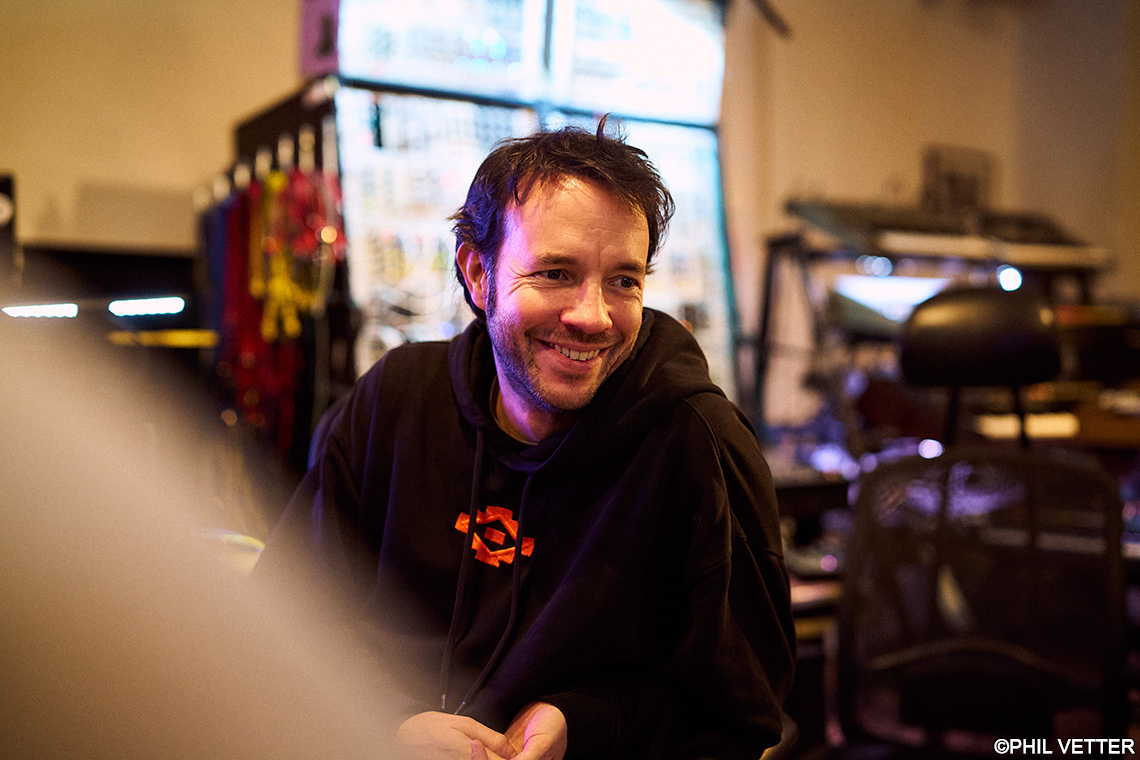
Speaking of people involved. What did your son do? Because he is in the credits, too.
Ha, you paid attention! He actually played a keyboard part that I really used. He was super young at the time. Now he is ten and playing drums. But at the time he was maybe three or four. I think it was 2020 when I had to take my kids to the studio all the time because of Covid and because my wife had to work. The kids were always fooling around with instruments, and he played on a toy piano random stuff. I said “Hey, cool, let’s record something on the music!”. He probably didn’t even know what that was. I gave him the music on the headphones, and he played random stuff along. But something fitted and I used that, looped it and put it in the track. Of course, he got the credit then, too. And, he is also on the same track because we used an original acoustic guitar loop I made on the couch in our old home. At that time, he was a baby. He sat next to me and made some baby noise and that’s still on the recording we used. So, he is on the same track when he was a baby, and when he was three or four years old. And the progression is that soon I will be able to record him playing drums.
Wicked! I will listen out for him! You mentioned Silvan Strauss a couple of times. How did he actually become the co-producer of the project?
This is a long story. I told you I knew him since he was a teenager. He was very good at the time already. Then he studied drums in Hamburg and managed to make me his master prof. So, for his master studies I was his main teacher at the university, and he studied music production with me. We did it mostly in my studio. He was already an exceptionally good drummer at a very young age, and I showed him everything, really everything I know over the course of two years in the studio. We had this once in a lifetime opportunity for a student to do this one-on-one coaching in the studio with someone who has been doing it for a long time, which had nothing to do with the regular university approach. It was a very special situation.
That’s how we got into producing together because we had so much time, also to figure out stuff, to learn and to experiment, besides regular lessons. We founded a production duo called AnalogBassCamp and we also toured live a bit as a duo with remixes. That’s how we got into producing together. We did a lot of productions for different people. I mixed his stuff, mastered some of his records, and by the time he was ready for his first solo album he was able to mix it all by himself. On his first solo album I am only on one track featured as a percussion player, which I’m very proud of. The second one I mastered and did the Atmos mix.
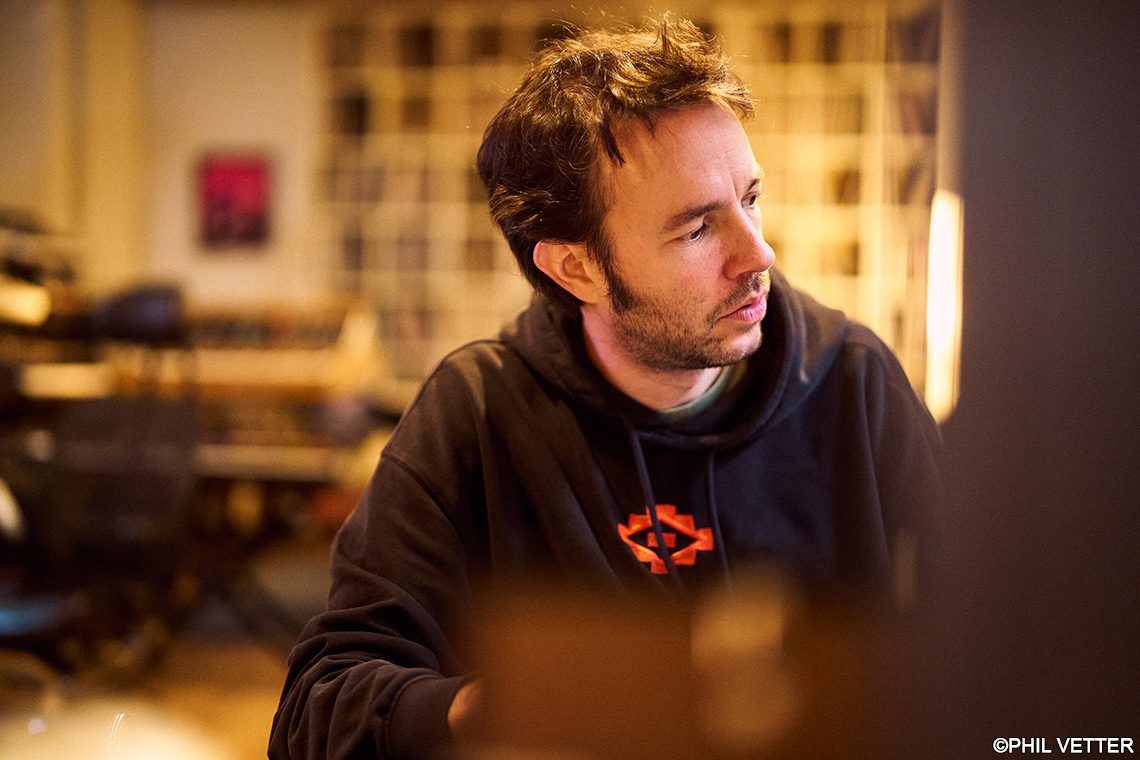
But he is a very good engineer now, with mixing, as a producer, remixer and he can also mix a whole album by now. He is not doing it as a job so much for other people, more for his own but he is capable of doing a full production. The study was now years ago, he took his own route, his own way, and is making brilliant stuff. Now, you could say, in some ways he is much better than me because I’m not a good musician and he’s a fantastic musician. He can do very different things from what I do. Also, sonically he moved in a different direction. Yeah, he is kind of better than me now, he is much younger and from the drumming he’s got a lot of creativity also for the production. We work together very well, it’s a very good relationship, very easy. We never discuss stuff. If we both like it, we go that way. And if one of us says “no, it’s not good” then we don’t go that way. Very simple. Or, if one says “no, I’m sure this is good” then the other one goes that way, too. We never clash or fight or have to figure out things differently. To me, that’s very unique. I love to work with other people, too, but for me it’s the easiest way and that’s why I hired him to finish the album with me because I needed some help. Because compared to when I did my first album and when I started this, back then I was very young. You remember the story in Brooklyn with learning about the Fela Kuti documentary and YouTube. I was 25, very young for a producer. I had much more time. I already had good jobs, but not so many and all the other time in between I was experimenting, working on my own stuff… as the years went by every year it became more and more and more jobs that I enjoy a lot but you’re losing the focus. Also, there was no social media before that. YouTube just came out. There was way less distraction. Now we’re all super distracted all the time by bullshit, everybody has too much work… I also needed someone to lock in with me for the final, to just do it right now, old school. In between, sending stuff back and forth, that was years. But in the end, we did the final mix, bringing everything together in just three days.
Yes, it is really crazy if you think about it. The album took 18 years and wow, what happened within these last 18 years! It’s like a whole different world now. I think that’s what also makes this album so great, because it is timeless. It would have worked 18 years ago, it’s working now, and it would have probably worked in the 70s. That’s wicked!
Yes, and at the time there was like an Afrobeat revival wave coming. There are also fantastic bands from South America. For years, I tried to get tracks from South American bands that I really love and who I thought had really figured it out, but I just couldn’t make it happen. There were two or three waves of Afrobeat revivals that I missed (laughs) Totally stupid! I saw these waves and it was like “Oh, there’s the next Afrobeat wave and I’m still not ready.” As I already said in the press release, at some point, it became a journey that you don’t want to leave or don’t want to stop. It’s like “Ok, I like working on this thing forever, maybe it’s never coming out?! Who cares?! Nobody cares! Nobody knows about it.” One guy wrote me “Hey man, I remember you showed me the first recordings at the time! Congratulations you made it!” (laughs)
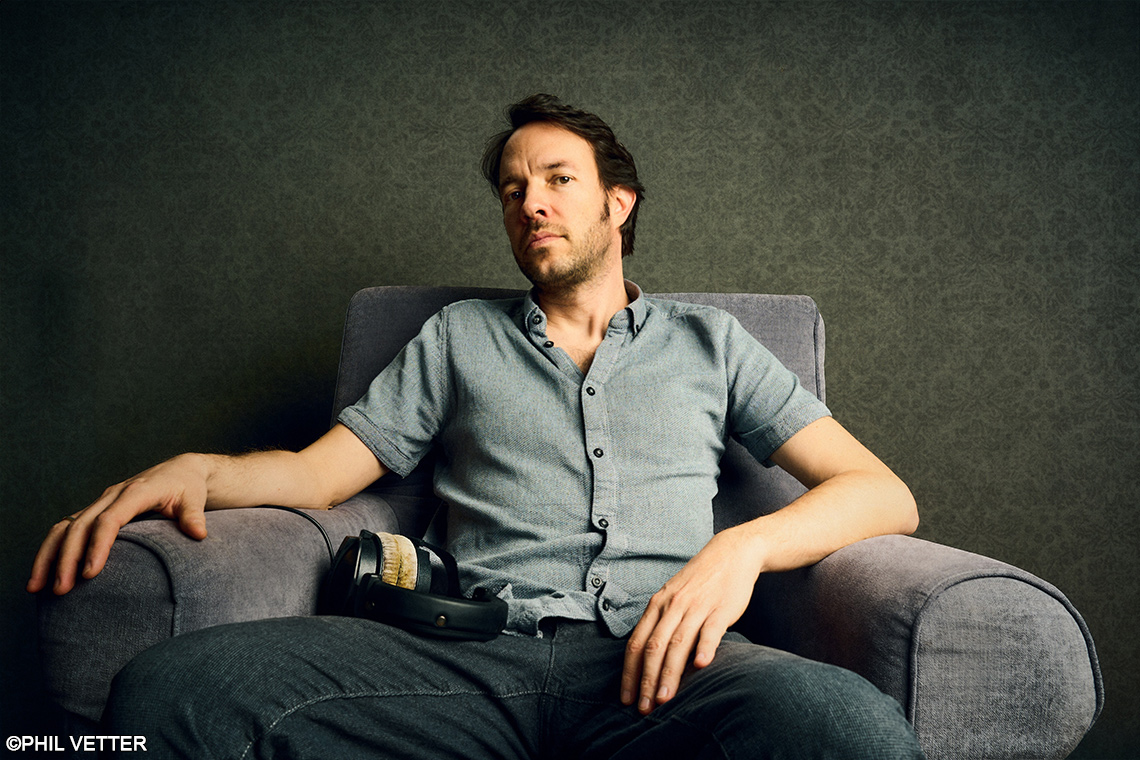
Wicked! But that leads me to the final question: at what point did you realize “Ok, it is finished now, it is ready now”? When were you able to conclude everything?
Those were the three days in the studio. Before that, I knew it was kind of finished. I have a proper studio where I work, where I do all the jobs for all the people that I work with or most of the stuff. So, I could have done it here, but not as condensed as I did it. When you book a studio, you prepare everything to bring it there, that’s already like giving yourself a deadline. Then you can’t say “Ya nah, I do it tomorrow, I do it tomorrow”. That’s what I did for 18 years. It was like “Oh, this song, I forgot about it, ah great!”, then I worked one night on it and maybe I even forgot about it again, what I did that night. And when I opened it up again, I was like “Huh, when did I do that?!” So, I knew I had to go with one person, that was Silvan, to a studio that is away from my home, away from my studio, where we go in and make it happen.
There was just one song that wasn’t ready at the time, that I had to do afterwards. But that was it.
Oneness Records is also my label that I do with Benjamin Zecher and Moritz von Korff since like forever. We released this album digitally, but I have partners, GLM Music here in Munich. I work with them for 25 years as an engineer. They gave me the great opportunity to use their physical distribution network worldwide. They are the physical label, made the vinyl, the CD, and also the cassette, which is nice. I have 100 cassettes. It’s 90 minutes and the A side is the full album with 44 minutes and the B side is all the outtakes, extended versions, all the stuff that led to the album.
How cool!
That is really, really cool and it’s only on the cassette! For the people who want to know what it’s all about, the journey, they need the cassette.
That’s super awesome! So, is there anything you want to add that I didn’t ask you for?
Yes, since we mentioned all the formats… it’s also coming out in Dolby Atmos! It’s not ready, because I messed up, but it’s also coming out in this beautiful surround format that you can hear on Apple Music and Tidal. More and more streaming services are now providing it. So, you can listen with headphones, regular ones, or even better with Apple ones, or with smaller home cinema set ups you can hear the full Afrodub Experience in Dolby Atmos. Very soon!
